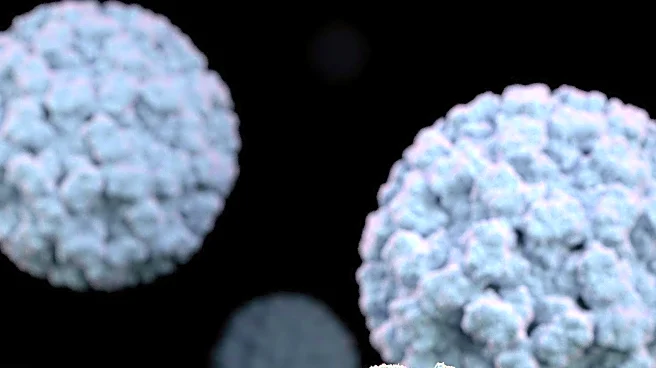What's Happening?
A comprehensive single-cell atlas of the immune ecosystem in esophageal squamous cell carcinoma (ESCC) has been developed to predict responses to immunotherapy. Researchers used CyTOF profiling to analyze
immune cells from tumor tissues, adjacent non-tumor tissues, and blood samples of 25 ESCC patients. The study identified distinct immune cell populations and their activation states, revealing significant differences in immune cell composition between tumor and non-tumor tissues. This atlas provides insights into the tumor microenvironment and its influence on patient prognosis and therapy response.
Why It's Important?
This research is significant as it enhances the understanding of the immune landscape in ESCC, which is crucial for developing effective immunotherapies. By identifying specific immune cell populations associated with better responses to treatment, the study offers potential biomarkers for predicting patient outcomes. This could lead to more personalized treatment strategies, improving survival rates and quality of life for ESCC patients. Additionally, the findings may inform the development of new therapeutic targets, advancing cancer treatment options.
What's Next?
Future research will likely focus on validating these findings in larger patient cohorts and exploring the therapeutic potential of targeting specific immune cell populations. Clinical trials may be designed to test new immunotherapy approaches based on this atlas. Researchers may also investigate the applicability of these findings to other cancer types, potentially broadening the impact of this study.










